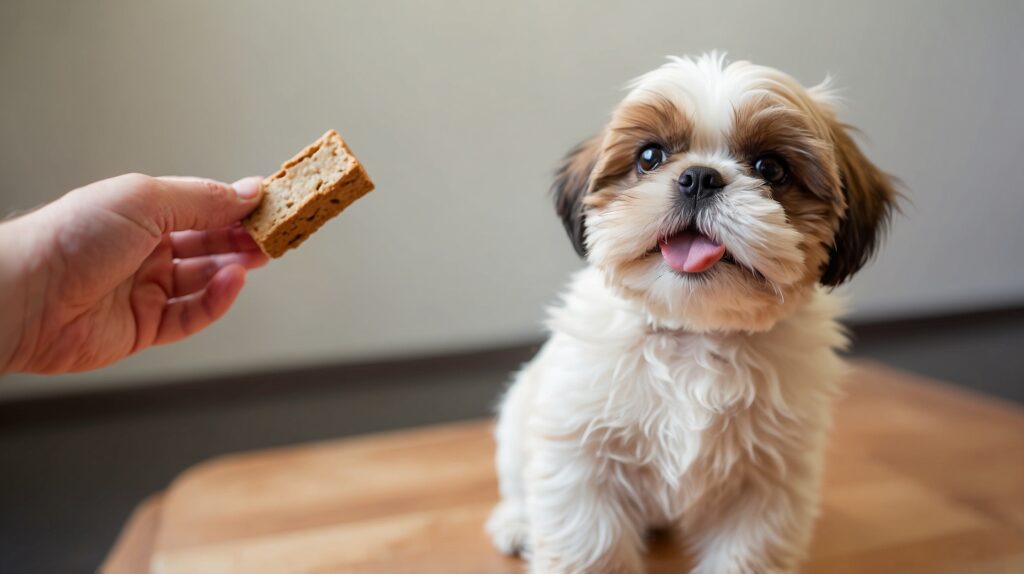Shih Tzu Training: Expert Tips for a Happy, Obedient Pet

Ultimate Guide to Training Your Shih Tzu for a Happy and Obedient Pet
Note: This post may contain affiliate links; we will earn a commission (at no additional cost to you) if you purchase via our links. See our disclosure for more info.
Introduction
The Shih Tzu, with its luxurious coat and charming disposition, is a beloved companion for many pet owners. Known for their friendly and affectionate nature, Shih Tzus are a joy to have around. However, without proper Shih Tzu training, these small dogs can become a handful. Training is crucial for a well-behaved Shih Tzu, ensuring your pet is happy, healthy, and a respectful member of your household.
Understanding the Shih Tzu Temperament
Shih Tzus are renowned for their affectionate and playful temperament. They thrive on human companionship and often form strong bonds with their owners. Despite their endearing qualities, Shih Tzus can be stubborn and independent-minded, which may pose challenges during training. Patience and consistency are key when training a Shih Tzu, as their wilfulness may occasionally test your persistence.
Essential Training Equipment for Shih Tzus
To successfully train your Shih Tzu, it’s essential to equip yourself with the right tools. A sturdy leash and harness are fundamental for guiding your pet during walks and training sessions. High-quality treats serve as an excellent motivator for positive reinforcement. When choosing equipment, consider products designed for small breeds, ensuring they are comfortable and well-fitting for your Shih Tzu.
Basic Obedience Training
Mastering basic commands such as “Sit,” “Stay,” and “Come” is fundamental to your Shih Tzu’s obedience training. Utilize positive reinforcement by rewarding your pet with treats and praise when they correctly follow a command. Consistency is crucial to manage common training issues such as ignoring commands or getting easily distracted. Short, focused training sessions are effective in maintaining your Shih Tzu’s attention.
Socialization Techniques for Shih Tzus
Early socialization is vital for cultivating a well-adjusted Shih Tzu. Introducing your pet to a variety of people, dogs, and environments can greatly reduce anxiety and fear-related behaviors. Take your Shih Tzu to parks, pet-friendly events, or even puppy classes to enhance their social skills. Positive interactions will promote confidence and friendliness in diverse settings.
Potty Training a Shih Tzu
An effective potty training regimen is a must for any Shih Tzu owner. Begin with establishing a consistent routine, taking your pet outside at regular intervals, especially after meals and naps. Avoid common pitfalls like inconsistency or negative reinforcement, as these may confuse your dog. For apartment dwellers, consider using pee pads as an interim solution to maintain a clean living space.
Crate Training Your Shih Tzu
Crate training offers numerous benefits, including providing a safe environment for your Shih Tzu. When properly introduced, a crate serves as a cozy refuge for your pet. Gradually acclimate your Shih Tzu to the crate by placing treats and toys inside, allowing them to explore the space at their own pace. A well-trained Shih Tzu will view the crate as a haven rather than a confinement.
Addressing Behavioral Issues
Shih Tzus, like all breeds, may exhibit behavioral problems such as excessive barking, stubbornness, or separation anxiety. Address these issues with specific strategies tailored to your pet’s needs. For example, consistent training and socialization can reduce barking, while interactive toys or leaving the radio on can alleviate separation anxiety. Understanding your Shih Tzu’s triggers allows for more effective behavior management.
Training Adult vs. Puppy Shih Tzus

Training a Shih Tzu varies depending on their age and life stage. Puppies are typically more receptive to new experiences, making early training and socialization crucial. Conversely, adult Shih Tzus may require different techniques, especially if they are set in their ways. Regardless of age, each Shih Tzu can learn with patience and tailored approaches.
Advanced Training Options
Once your Shih Tzu masters basic obedience, you may opt for advanced training to further challenge them. Teaching tricks or more complex commands serves as both mental stimulation and a fun bonding activity. Consider participating in dog sports such as agility or obedience competitions to channel your Shih Tzu’s energy and intelligence in a productive manner.
Professional Training Resources
Sometimes, enlisting the help of a professional trainer is the best course of action for more obstinate Shih Tzus. Professional trainers bring expertise and objectivity to overcome training hurdles you might encounter. When choosing a trainer, look for individuals with experience in training small breeds, and ensure their methods align with your training philosophy.
Conclusion
Training a Shih Tzu requires a blend of patience, consistency, and an understanding of the breed’s unique temperament. By equipping yourself with the right tools and resources, you are laying the groundwork for a well-behaved and balanced pet. Continue to reinforce positive behaviors and remain proactive in addressing any emerging issues, fostering a lifelong, harmonious relationship with your Shih Tzu.
